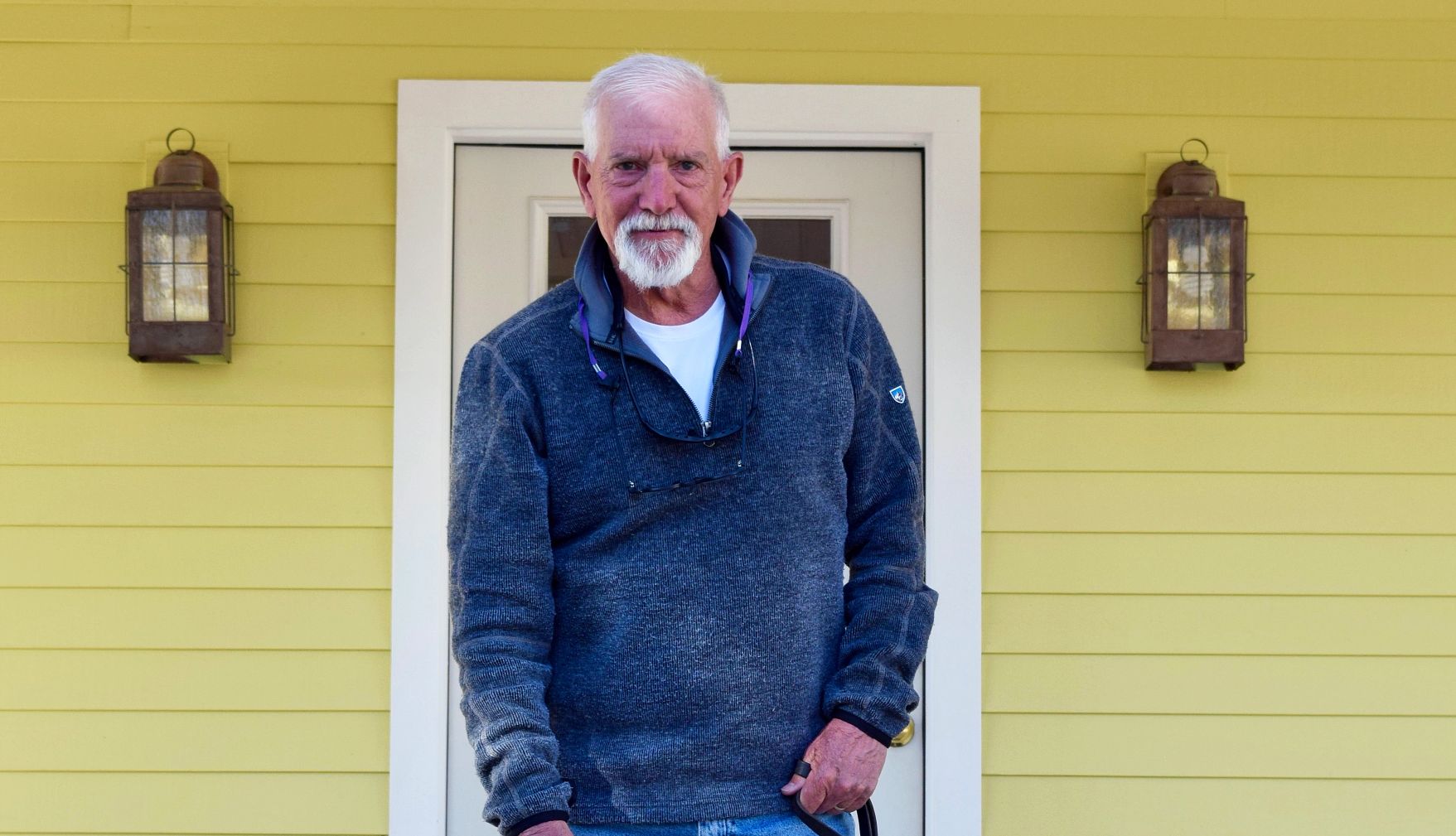
5 reasons to relocate in retirement
- Select a language for the TTS:
- UK English Female
- UK English Male
- US English Female
- US English Male
- Australian Female
- Australian Male
- Language selected: (auto detect) - EN
Play all audios:

Journalist and author Martin J. Smith spent decades living and working in cities or nearby suburbs. But when it came time for him to retire from full-time employment as a magazine editor in
Southern California, he and his wife, Judy, a retired municipal manager, opted for something different. The couple relocated in 2016 to Granby, Colorado, a town of about 2,200 in the Rocky
Mountains northwest of Denver. Granby is known as a destination for skiing, hiking and fishing, but Smith says it’s also a place where a retiree can shed the stress of congested urban life
and reconnect with nature. Where the day’s biggest complication might be a pregnant moose cow deciding to bed down in your pasture. Judith Smith chases a cow out of her yard in Granby —
something her husband, Martin, says never happened when they lived in Southern California. Courtesy Martin J. Smith For Smith, 68, Granby’s neighborliness and slower pace have equally strong
appeal. “It’s easy to feel in a big city that you really don’t matter, and you’re just struggling along,” he explains. “But in a small town, you do matter. Your actions affect people
directly all the time, and their actions affect you.” He’s made numerous friends through volunteer work with the local historical association and Habitat for Humanity and says he’s enjoying
the transition so much that he’s considering writing a book about his experience. Smith’s story is not unique. Across the country, many older Americans are seeking a change of scene as they
leave working life, or most of it, behind. One in seven United Van Lines customers name retirement as their reason for moving, according to the company’s 2023 National Movers Study. In four
states — Delaware, Florida, Maine and South Carolina — at least a quarter of new arrivals last year were retirees. “A majority of my clients who are retired or considering retirement are
looking to relocate,” says Christie Russell, a Dallas-based financial adviser with Rethink Wealth. Russell and other advisers say a variety of factors influence retirees’ decisions to
relocate, from seeking the sun to being closer to loved ones. Personal finances play a role, too: In a January 2024 survey of U.S. adults with at least $10,000 in investable assets,
commissioned by insurance and financial services firm Nationwide, one-third said that if they were to retire in the next 12 months they would move to a different state or country with a
lower cost of living. Often, “it comes down to money, family and weather, either one or a combination,” says Barbara O’Neill, a retired Rutgers University professor and author of _Flipping
a Switch: Your Guide to Happiness and Financial Security in Later Life_. TOP STATES FOR RETIREE MOVES These 10 states had the highest one-year net migration of people 60 and older — the
number moving into the state minus the number moving out — in the latest “Where Retirees Are Moving” report from consumer finance website SmartAsset. 1. FLORIDA (net 60-plus migration:
77,290) 2. ARIZONA (23,515) 3. SOUTH CAROLINA (20,895) 4. TEXAS (18,742) 5. NORTH CAROLINA (11,339) 6. GEORGIA (10,235) 7. ALABAMA (8,593) 8. TENNESSEE (8,329) 9. NEVADA (6,091) 10. KENTUCKY
(5,878) Source: SmartAsset (from 2022 U.S. Census Bureau data) Here are five of the most common reasons retirees decide to make a major move. 1. LOWER HOUSING COSTS According to a 2023
Vanguard study, 60 percent of retirees who move sell a home in a high-priced market and move to a cheaper locale. In the process, they typically pocket around $100,000 in home equity, which
they can use to augment Social Security and retirement savings or pensions. Russell says it’s a good deal, even if the house you’re selling is paid off. “While a lot of my clients do not
carry a mortgage anymore, the high costs of property taxes, utilities and upkeep are factors for relocation,” she says. “The vast majority of people looking to retire have most of their net
worth tied into two places, the equity in their home and their qualified [retirement] plans. A relocation is a great opportunity to liquidate equity in a sale of a home in order to prepare
for the financial goals that retirement presents.”
